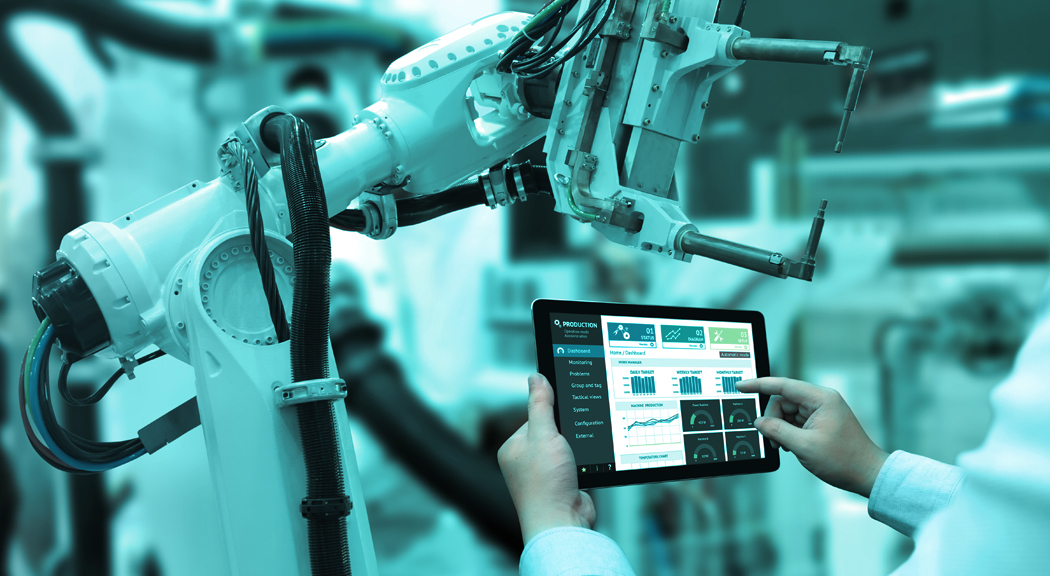I understand that online purchases translate to purchases in the real world.
Keeping up with Digitization and Automation in the Workplace

Manufacturing robots, smart assistants, virtual travel booking agents, proactive healthcare management, social media monitoring, chat tools, and conversational chatbots… artificial intelligence (AI) and digital tools are shaking up traditional organizational structures and ways of working. From finance to healthcare and customer service; from travel to e-commerce and crowdfunding; automation has made work more intense, while digitization has begun dramatically affecting all organizations, regardless of their size and type of activities.
As waves of technological innovation are frequent and accelerating, they require constant adaptation by both companies and their employees. Moreover, with the COVID-19 lockdown, the ongoing crisis is changing the job market. With more layoffs and people looking for opportunities, the situation is all the more complicated. Yet the truth is, with such challenges come new job opportunities.
So what type of skills will you need to stand out in an automated, digitized workplace? How can they help you stay relevant amidst these changes? How can they help you land a job in the post-COVID era?
As technology is fundamentally changing the way work is done, the digital shift has brought about an intrinsic change in employee tasks. While some will cease to exist, others will have to be done either differently or in close collaboration with technologies. The level of skills required to undertake them is therefore much higher, and the hiring criteria more demanding.
Here are five top tips that can help you stay relevant in the workplace:
1. Assess your technical skills:
Skills are appreciated in according to the level of expertise one has in them. These are the three general degrees of expertise:
- Degree 1: “I perform this action with the help or supervision of another person”
- Degree 2: “I perform this action independently, reliably, and efficiently”
- Degree 3: “I carry out this action and I can transmit this know-how to other people”.
2. Make a list of areas that need improvement:
Want to be digitally savvy? Want to get familiar with the latest AI trends? Find out what you need to master in both fields in order to expand your technical expertise. You can, for example, research the activities of the companies you’re interested in applying for, and see which tools or technologies they use. And then you can plan to learn about these!
3. Let technology become your ally, not your enemy:
Try new tools and experiment with them. Attend trainings. Subscribe to digital blogs. Take online courses. Google Digital Garage, for example, is a priceless resource that helps you learn at your own pace with flexible and personalized training courses. And guess what? The majority of the courses are free! Other learning portals include Udemy, Coursera, and Khan Academy.
4. Get familiar with digital marketing:
Digital marketing and social media belong to the marketing department, but today employees from other departments are often asked to help. Familiarize yourself with the basics of digital marketing and the various social media channels. It is a definite plus on your resume!
5. Familiarize yourself with cybersecurity's best practices:
Cybersecurity is one of today’s biggest issues and will remain so as digital transformations advance. Cyber-security threats are all around you; at home and at work. Moreover, they have become more sophisticated with automation and digitization, as a host of new and evolving cyber-security dangers continue to threaten information security. However, there are simple preventative measures you should take to help ensure your company’s information safety:
- Protect your data.
- Avoid pop-ups, unknown emails, and links.
- Use strong password protection and authentication.
- Enable firewall protection at work and at home.
- Coordinate with the IT department to install security software updates and back up your files.
New technologies arrive all the time. Automation and digitization are not one-offs. As individuals, we too need to constantly evolve, not only to meet the demands of our employers but also for our own personal career goals. Ideally, this happens by dedicating time to renew our skills in order to remain employable and fit to match the requirements of the new job market, and by developing a culture of continuous self-education.
@2x.png)

















